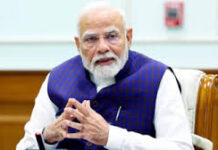New Delhi, May 2: Men are more likely than women to die young, but women also tend to spend a larger percentage of their lives in poor health, according to a recent global study published in the Lancet Public Health journal.
The study revealed that men had a higher illness burden and early mortality across a range of health issues, based on data from the Global Burden of illness Study 2021. Thirteen of the top twenty causes of disease burden in 2021, including COVID-19, heart disease, cancer, lung conditions, and liver disease, disproportionately impacted men and frequently resulted in premature death.
The study examined the incidence of various health disorders and factors associated with premature mortality, analyzing data from 1990 to 2021.
The analysis underscores the disparities in health outcomes between genders, with men bearing the brunt of life-threatening conditions while women grapple with non-life-threatening ailments. Women were found to experience higher levels of illness and disability, attributed partly to their longer lifespan compared to men.
Conditions such as musculoskeletal disorders, mental health issues, and headache disorders were more prevalent among women. Dr. Luisa Sorio Flor, senior author of the study from the Institute for Health Metrics and Evaluation at the University of Washington, USA, highlights the significance of these findings in understanding the global disease burden and its impact on gender-specific health outcomes.
The research underscores the need for targeted interventions to address the unique health challenges faced by both men and women. While efforts to mitigate the impact of life-threatening diseases on men are crucial, attention must also be directed towards improving the overall health and well-being of women, particularly in addressing chronic and disabling conditions.
By recognizing and addressing these disparities, policymakers and healthcare professionals can work towards promoting equitable access to healthcare and improving health outcomes for all genders globally.








